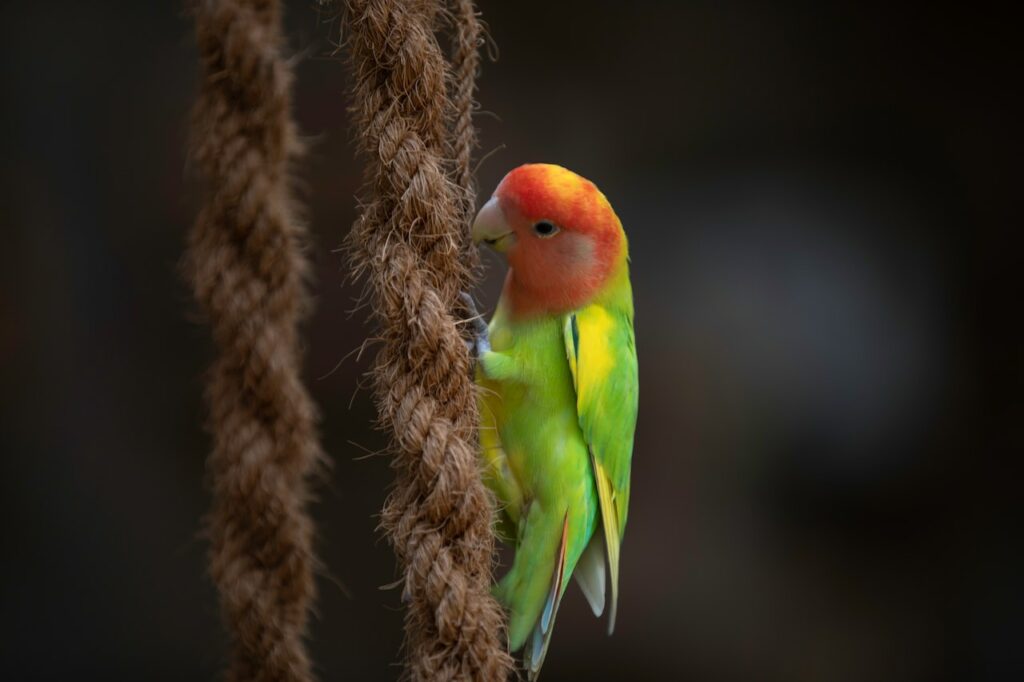Love Birds Food: A Comprehensive Guide
If you’re a bird enthusiast – or love animals in general – you need to read this article on love birds’ food. Not only will you learn about the different types of food love birds eat, but you’ll also learn how to feed love birds properly and what love birds should not eat. So, whether you’re a first-time bird owner or have been caring for lovebirds for years, make sure to read this article!
Introduction
Love birds are among the most beautiful and colourful pet bird species. They have endeared themselves to humans with their cheerful personalities, fun-loving outlook, and intelligence. It’s important to ensure your lovebird receives all the nutrition to stay healthy and active. This guide will look in-depth at love birds’ food and discuss what they should eat to stay in top shape.
Types of Love Bird Food
Your love bird’s diet should include three main types of food: seeds, pellets, and fresh foods (fruits and vegetables). Let’s look at each type in more detail below:
- Seeds: Seeds such as sunflower, millet, canary grass, oats, safflower, hemp and buckwheat provide a nutritious source of vitamins and minerals for your lovebird. Seeds should comprise about 25-30% of their diet.
- Pellets: Pellets are formulated specifically for parrots like lovebirds. These offer a balanced blend of vitamins, minerals and nutrients that help keep them healthy. Pellets should make up about 30-40% of their diet.
- Fresh Foods: As omnivores, lovebirds can also benefit from eating fresh fruits and vegetables as part of their daily diet. Make sure you regularly provide a variety of nutrient-dense options, such as apples, carrots, spinach or broccoli, among other choices (about 20%). You can also offer occasional treats such as cooked eggs or nuts in moderation (up to 10%).
Health Benefits Of Eating Love Bird Food
From seeds to pellets to fresh foods – when combined properly – love birds’ food provides numerous health benefits for these special feathered friends.
Here are just a few examples:
- Improved digestion thanks to the prebiotics found in some seed mixes
- Enhanced feather quality from the Omega 3 fatty acids found in many seeds
- Balanced energy levels thanks to the carbohydrates provided by pellets
- Increased Vitamin A intake from leafy greens like spinach
- Improved overall joint health with vital antioxidants found in fruits like apples
Tips For Feeding Your Love Bird
Now that you understand more about the different types of food your love bird can eat, let’s go over some tips on how best to go about providing them with all they need nutritionally speaking:
- Feed only enough food that they’ll eat within 30 minutes; any leftovers should be removed
- Offer fresh water every day – clean it regularly!
- Provide treats like cooked egg or nuts only occasionally
- Use varying-sized dishes for both seed/pellets mix and fresh foods
- Inspect your bird’s droppings regularly – if it appears abnormal seek veterinary advice immediately
- Be cautious about adding new foods – introduce them slowly into their diet
- Monitor your bird’s weight regularly – underweight or overweight could indicate health problems
Conclusion
Love birds are wonderful pets who require special care when it comes to feeding them correctly, so they stay healthy and happy throughout life. The key here is offering a balanced mix between seeds/pellets/fresh foods while monitoring quantity amounts regularly and inspecting droppings often for any irregularities that could point towards potential health issues. Finally, ensure you’re giving your pet access to plenty of fresh water daily!
If you love your love bird as much as we do, ensure they’re properly insured with furrr.co.uk! Their comprehensive pet insurance plans are designed to provide the best medical coverage and protection for your feathered friend. Get started today and ensure your lovebird stays healthy and happy – they’re worth it.










